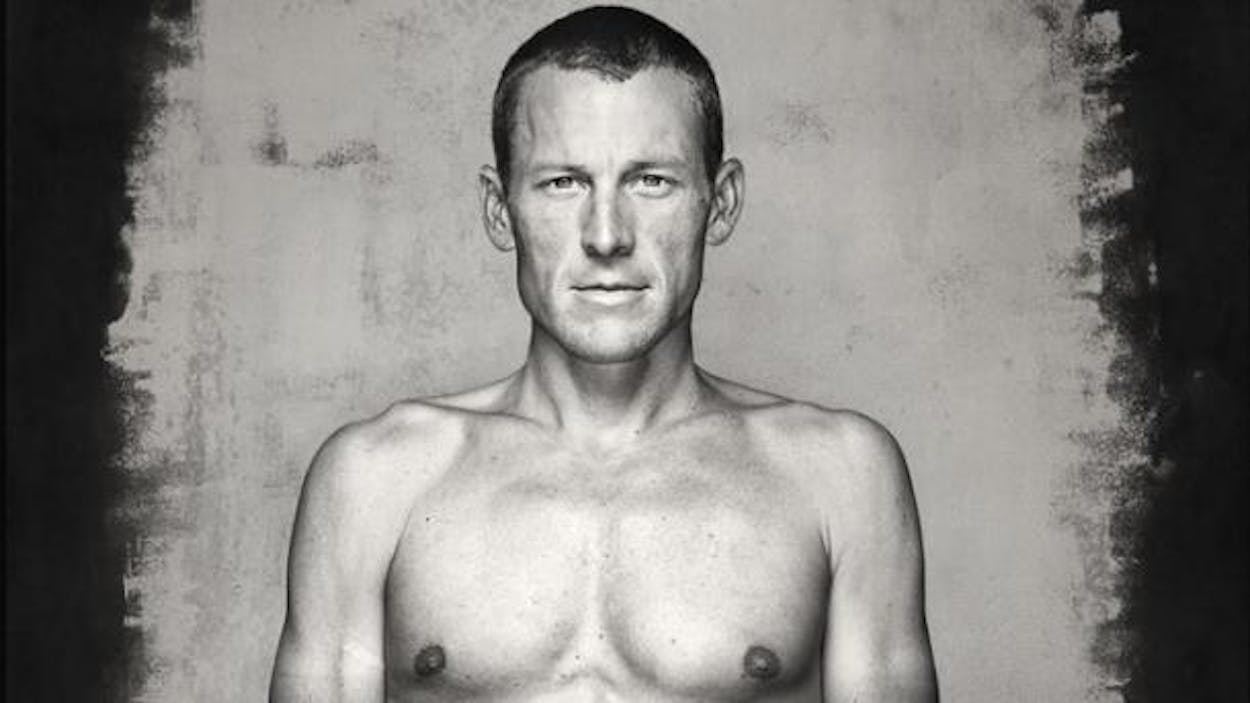
Bum Steer-in-perpetuity Lance Armstrong is in the news again, as a new book about the “conspiracy” to cover his doping is making headlines. That book, Wheelmen: Lance Armstrong, The Tour De France, and the Greatest Sports Conspiracy Ever, by Reed Albergotti and Vanessa O’Connell, paints a fairly damning portrait of both Armstrong and his supporters.
It also inspired a fascinating post from the Atlantic‘s Ashley Fetters, in which she compares Armstrong to some of the anti-heroes in pop culture who Americans can’t get enough of:
Pop-culture pop quiz time:
A cancer survivor—a respected guy, known to be a dad who loves his kids—has a secret: He’s involved with drugs.
The man stashes contraband in designated hiding spots in his home and, on repeated occasions, narrowly avoids getting caught by the authorities. He plays the innocent well enough in his daily, public life, but over a number of years, he becomes known to those close to him as manipulative and cruel; he threatens and intimidates others, including his closest associates, into silence while he continues to run his elaborate enterprise clandestinely.
Did these this series of events happen to
- Walter White on Breaking Bad, or
- Disgraced cycling champion Lance Armstrong, allegedly, in real life?
Trick question—both are correct. Here’s another one:
A man known for his prodigious talent becomes a well-respected name in his profession. He wins awards. His bosses build their business around his natural gifts. He’s admired by men and women alike. In his private life, however, he’s a philanderer, even though publicly he’s known as a family man with a wife and kids. And he has a career-endangering secret he desperately tries to keep hidden.
Is this the story of
- Don Draper on Mad Men, or
- Lance Armstrong, allegedly, in real life?
Again, both answers are correct. How about this one:
A respectable American family man is lauded for his fortitude after he pulls through unspeakably dangerous, almost certain-death circumstances. He becomes a celebrity and national hero. He earns the respect and trust of many of America’s most influential people. He even contemplates running for public office at the national level. This man, however, has a secret: He’s duped the American people. What he’s been so thoroughly lionized for doing is, in fact, the opposite of what he’s actually done.
Was this
- Nicholas Brody on Homeland, or
- Lance Armstrong, allegedly, in real life?
You get the picture.
Fetters asks good questions about Armstrong’s role in our culture—namely, whether we’d have so much contempt for the guy if he’d been a fictional creation. That’s a question whose answers tell us at least as much about ourselves and what we actually value in our popular narratives, versus what we profess to value, as it says anything about Armstrong himself. But at this point, if we can learn anything about ourselves by talking about the guy, it’s probably worth doing. After all, who’s not a little tired of talking about Armstrong himself?
Meanwhile, if that question made you raise your hand, make sure you’ve read Michael Hall’s cover story from our March issue.
AP Photo | LM Otero








